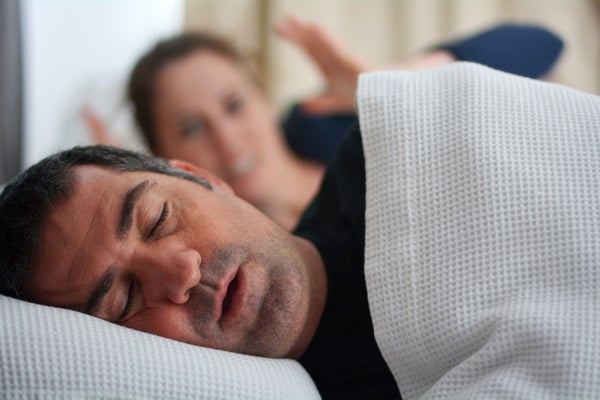Why Some Couples Are Choosing a ‘Sleep Divorce’
Sleep experts break down why some couples are choosing a “sleep divorce,” or opting to sleep alone instead of sharing a bed
chameleonseye/Getty Images
As important as romantic compatibility is for partners, their compatibility in the bedroom also matters—sleep compatibility, that is. Up to a third of couples in the U.S. are going through what social media is calling a “sleep divorce,” or opting for separate sleeping arrangements in search of a better night’s rest.
A sleep divorce might sound like a harsh bedtime breakup, evoking the image of a spouse spending the night on the couch after a fight. But the concept derives from couples who have prioritized better sleep over being in close proximity in the same bed, says Mark Aloia, an associate professor of medicine at National Jewish Health in Colorado and head of sleep and behavioral sciences at the smart bed company Sleep Number.
Only a few studies have looked directly at the effects on couples of sleeping together versus alone. But some evidence does suggest that sleeping separately—temporarily or permanently—is one approach that couples might consider if they want to snooze more soundly.
On supporting science journalism
If you’re enjoying this article, consider supporting our award-winning journalism by subscribing. By purchasing a subscription you are helping to ensure the future of impactful stories about the discoveries and ideas shaping our world today.
Not All Couples Are Sleep Compatible
Whether a sleep divorce is the right choice boils down to a pair’s sleep preferences—what is often called “sleep hygiene” For example, a person who enjoys slumbering in a dark and quiet room might struggle to fall asleep if their bedmate prefers to leave the television on at night.
Snoring is another common sleep disruptor. A 2017 study found that people who slept with a heavy snorer were three times more likely to have…
Read the full article here







